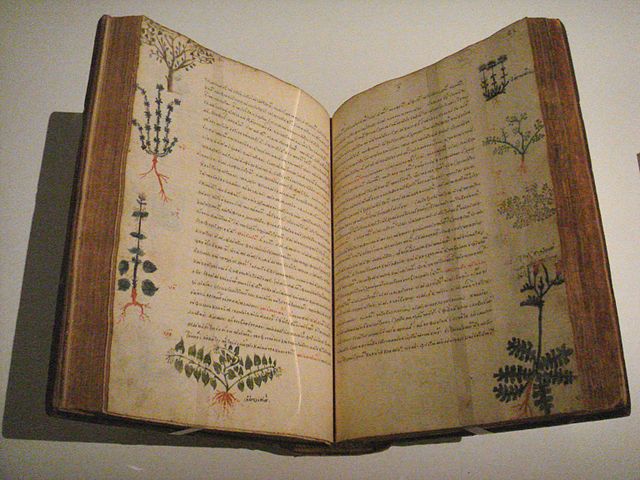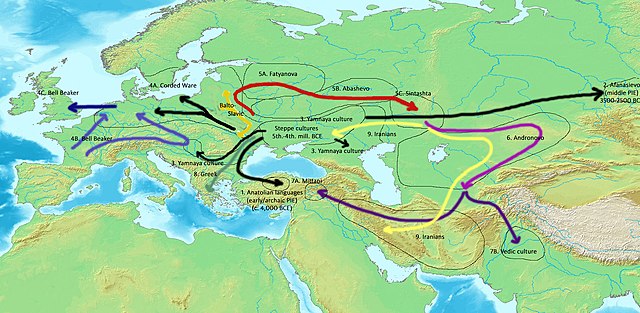Dacian is an extinct language generally believed to be a member of the Indo-European language family that was spoken in the ancient region of Dacia.
A fragment of a vase collected by Mihail Dimitriu at the site of Poiana, Galați (Piroboridava), Romania illustrating the use of Greek and Latin letters by a Dacian potter (source: Dacia journal, 1933)
Gold stater coin found in Dacia. Obverse: Roman magistrate with lictors. Legend ΚΟΣΩΝ (Coson) and (left centre) monogram BR or OΛB. Reverse: Eagle clutching laurel-wreath. Probably minted in a Greek Black sea city (Olbia?), commissioned by a Thracian or Getan king (Cotiso? Koson?) or by a high Roman official (Brutus?), in honour of the other. Late 1st century BC
Dioscorides, De Materia Medica, Byzantium, 15th century.
The Indo-European languages are a language family native to the overwhelming majority of Europe, the Iranian plateau, and the northern Indian subcontinent. Some European languages of this family—English, French, Portuguese, Russian, Dutch, and Spanish—have expanded through colonialism in the modern period and are now spoken across several continents. The Indo-European family is divided into several branches or sub-families, of which there are eight groups with languages still alive today: Albanian, Armenian, Balto-Slavic, Celtic, Germanic, Hellenic, Indo-Iranian, and Italic; another nine subdivisions are now extinct.
Franz Bopp was a pioneer in the field of comparative linguistic studies.
Indo-European language family tree based on "Ancestry-constrained phylogenetic analysis of Indo-European languages" by Chang et al.
Scheme of Indo-European language dispersals from c. 4000 to 1000 BCE according to the widely held Kurgan hypothesis. – Center: Steppe cultures 1 (black): Anatolian languages (archaic PIE) 2 (black): Afanasievo culture (early PIE) 3 (black) Yamnaya culture expansion (Pontic-Caspian steppe, Danube Valley) (late PIE) 4A (black): Western Corded Ware 4B-C (blue & dark blue): Bell Beaker; adopted by Indo-European speakers 5A-B (red): Eastern Corded ware






